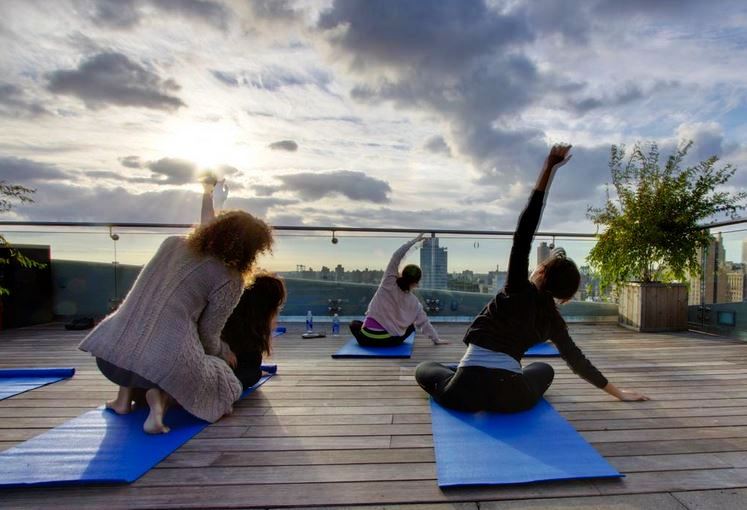The foods we eat can influence the pH of our vaginas. A naturally acidic pH is healthy, and so is having plenty of good bacteria to prevent infection. As we learn below, foods like fresh fruits, veggies, whole grains (and lots of water!) play significant roles in vaginal and reproductive health. Specifically, sweet potatoes, cranberries, avocados, kombucha and flaxseed are beneficial. If you like Greek yogurt, it’s helpful for this region, too. While we’re on the topic of “down there,” we’d like to point out that technically the vagina is the internal genitalia. Keeping the vulva or external genitalia cleansed is, of course, important as well. It’s also a good idea to avoid chemicals and listen to our bodies and intuitions.
Vaginal health is something all us women struggle with at least at one point in our lives. But, did you know that food could be the answer to your problems, it might sound silly, but certain foods work better than other for keeping the vaginal area healthy and working properly.
Did you know that at least 75% of women get at the very least one yeast infection in the span of a lifetime? Almost the same percentage for bacterial vaginitis. Different foods have different effects on the body’s Ph, some promote health and vigor, and others work against it. What we eat also has some sort of effect on the vagina and vaginal health. But, remember that sometimes, almost all the time, what is on your plate is the key to your own well-being.
Have you ever wondered why when you eat asparagus, your pee and well…. Your vagina smell funny afterward? Well, as it turns out the you are what you eat connection is a pretty important one. Healthy vaginas have a naturally acidic pH, as well as a host of bacteria to ward off infections and to keep everything going along as it should.
Here is a list of foods that have a positive impact on your vaginal health:
1. Cranberry Juice
Cranberry juice is loaded with acidic compounds that help to fight off bad bacteria; it is also great for urinary tract infections. Remember to go for a natural, no sugar added brand to get the benefits. ORGANIC 100% JUICE!
2. Yogurt
Yogurt contains the same good bacteria that your vagina needs to maintain its healthy pH levels. Look for a good yogurt with live active cultures/probiotics. I like to get Organic Plain Yogurt, and I add in My own fresh fruit and nuts for flavoring. Fresh vanilla bean is also wonderful!
3. Garlic
Garlic is known for its antimicrobial properties as well as antifungal properties. Eating it raw is best, you can also take it in pill form. It is especially good for yeast infections.
4. Dark Chocolate
Yes, that is right chocolate! I always knew there was a reason we are all so drawn to dark chocolate! Go for the high flavonoid kind, which is a great source of antioxidants, studies show that women who eat a minimum of one square a day report increased desire, and better overall sexual functions.
5. Water
All I can say here is DUH! Water is the key to life, you need it to survive, so it is only natural that it is tied to vaginal health. The mucous vaginal membranes require large amounts of water. To function properly, they need to be well hydrated. Listen to your body, there is no magic number. You want urine that has almost no color, and that has no musky smell. Water helps to lubricate your vaginal area as well as help to diminish odor.
6. Fresh Fruits and Vegetables
Want fewer menstrual cramps, better skin, easier orgasms? Eat a diet that supplies you with a variety of vitamins and minerals. Leafy greens should be consumed in abundance. They help with circulation and help to prevent vaginal dryness. Avocados are another natural stimulant that also helps with libido. They are also high in B6 and potassium that support healthy vaginal walls.
7. Seeds and Nuts
Vitamin E helps to prevent vaginal dryness and can be found in most seeds and nuts, as well as the oils derived from them. Things like almonds and pumpkin seeds are high in zinc, the essential mineral that regulates the menstrual cycle and helps to combat itching and dryness.
Originally posted on OrganicHealth.co.
-Art via We Heart It






No Comments